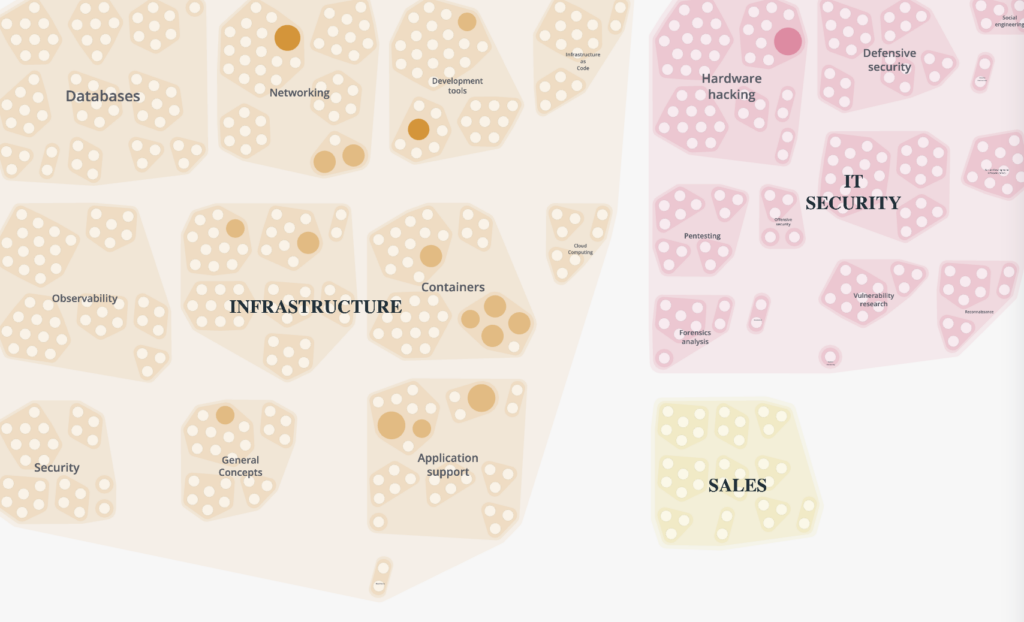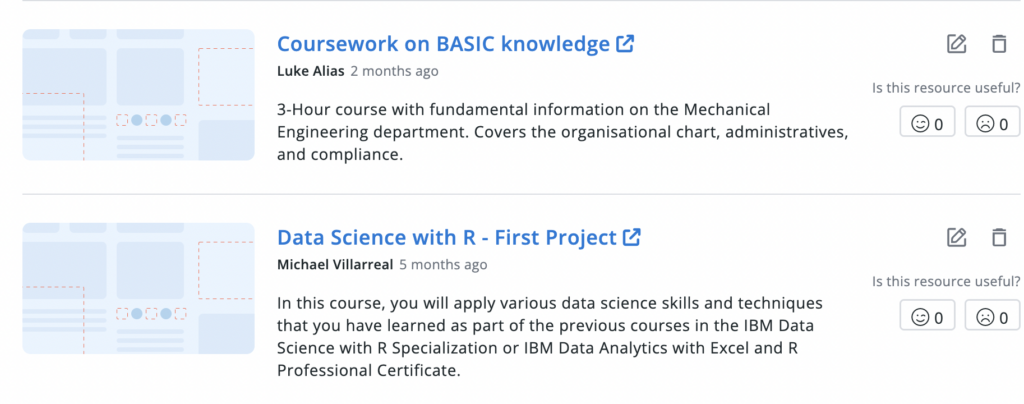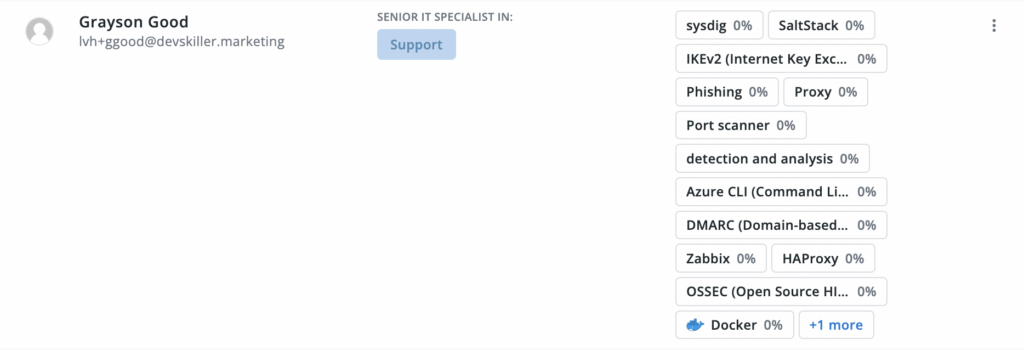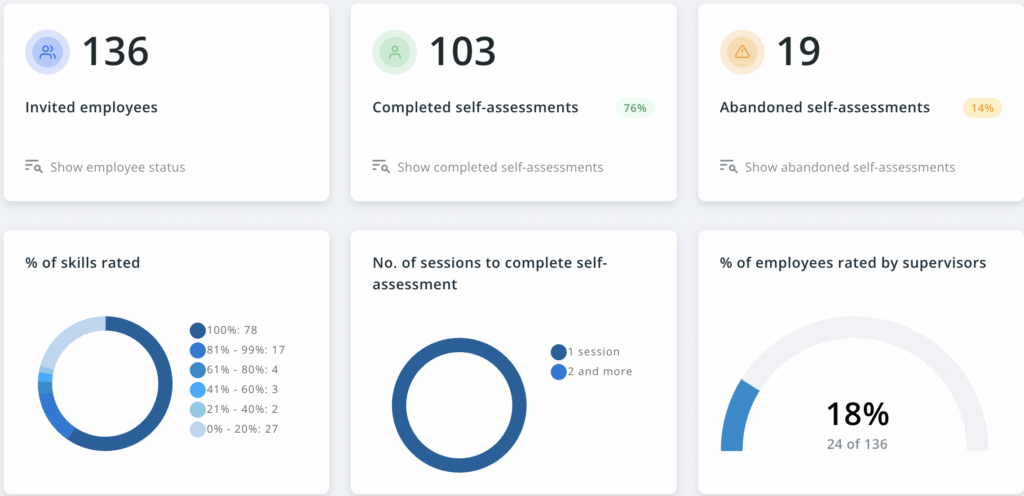Embracing the talent marketplace

Introduction
Talent management has evolved significantly in recent years, driven by shifting workforce dynamics and the need for organizations to attract, develop, and retain top talent. As a result, the talent marketplace has emerged as a powerful tool in talent management strategies. This article will explore what talent marketplaces are, their role in modern talent management, and the benefits they can bring to an organization.
What is a talent marketplace?
In the past, workers were hired for traditional job roles and possessed a specific set of skills. If you excelled in your position, you would climb up the ladder to promotion. This is what is known as a taxonomical version of staff development. However, this vertical system of hiring and working started to come undone with the rapid advancement of technology. Too often, workers were not adequately trained to cope with the ever-changing demands of the modern tech world. So, a better, more agile system of working developed—the skills ontology. This form of talent management is a model to assess the exact skills of every worker in an organization. And with that, comes the talent marketplace.
Read: What is a skills ontology?
A talent marketplace is an online platform that, with the use of AI, connects employees with the skills that make up an entire organization. It allows organizations to be able to identify the professionals whose skills will suit a given project or to see who can be easily trained to fit.
A talent marketplace is a centralized hub where organizations can access a diverse talent pool of skilled professionals from within their internal workforce. It is an online platform where skills can be matched to the employees who possess those skills. Therefore, making it easier to offer growth opportunities and specific career paths.
Internal hiring and skills-based development make it easy for current employees to develop new skills and keep their work relevant as the world changes around them. This, in turn, promotes positive company culture within your organization. For HR professionals, the focus is not all on finding the right external people for the job. Filling open positions becomes as much about developing current talent, as hiring new employees.
The skills making up a talent marketplace can vary greatly. For instance, technical skills, creative expertise, and managerial capabilities are all skills that could be found in a talent marketplace.
Read: What is Talent management and why do you need it?
How talent marketplace platforms work
The use of a talent management platform can assist in the creation of talent marketplaces in organizations across the globe. It works in the following way:
Map your employees’ skills
The first task of creating an effective talent marketplace is to create a skills map of current employees. It’s crucial to understand the capabilities of the employees within your workforce. The creation of a detailed skills ontology is a necessity. A skills ontology forms a roadmap of skills.
TalentBoost is an advanced talent management tool that creates a detailed, strategic skills ontology based on the skills of your entire organization. Not limited to specific silos, the entire organizational structure of the company can be mapped out.
DevSkiller TalentBoost has an integrated library of learning materials and tasks, perfectly tailored towards advanced employee development.

Read: What is skills mapping?
Define the skills needed for a specific role or project
Breaking down the skills that make up a role makes it easy to identify paths for development as well as any skills gaps. Career pathing acts as a way to incentivize internal talent by presenting them with clear career growth opportunities. A focus on the professional development of employees creates a growth mindset that means workers know there is a chance to progress within your organization. Once the skills of both the employee and the specific role or project are mapped, it becomes a simple process of matching talent to the relevant area.
Provide learning opportunities
Providing growth opportunities to internal candidates is a huge draw to any company. Workers want to know they have a future within an organization, and that they will be able to progress and develop their knowledge. The development of employee skills benefits both the employee and the employer.
A talent marketplace creates a culture of progression where internal mobility is promoted and career development is paramount to the goals of the organization. Specific learning materials can then be devised to spur on the development of employees.

Assign people where they are needed most
A talent marketplace allows organizations to match employees with specific skills and make sure that employees’ talents are being utilized to the full. This means, no more wasted potential. It becomes possible to see the exact areas in which employees are qualified and what work still needs to be done to bring them up to speed.

The benefits of the talent marketplace
The future of work evolves around business agility and being able to map the skills of both workers and organizations. There are several key business benefits that come from using talent management tools to create talent marketplaces.
Closing skills gaps
Talent marketplaces help to close skills gaps by identifying the exact areas within an organization where skills are lacking. It is possible to match employees with relevant tasks based on their skill sets, so it becomes very easy to identify areas where no employee is adequately qualified, and immediately begin to train workers in the relevant area. In this way, talent marketplaces help to lessen the talent shortage in key areas.
Aligning company skills with business needs
Platforms like TalentBoost allow organizations to align their workforces with specific, key objectives. This means that precise development goals can be set, to correlate with the organization’s precise projects and business strategies.
Talent mobility and the internal talent marketplace
An internal talent marketplace is a database of workers within an organization matched against their relevant skills. This means that instead of having to outsource certain projects to freelancers, organizations can easily identify those within the company who can be selected to complete a project. This increases internal mobility, as it allows employees to upskill and reskill into various other roles than the one they were originally hired for.
It is also possible through the internal marketplace to offer workers temporary assignments in order to address a specific strategic function. As priorities shift, workers can be selected to apply their skills in various professional settings.
Employee Retention
Increased internal mobility is crucial for employee retention. Keeping the same workforce year after year maintains company culture and values, but also boosts employee engagement and enhances job satisfaction. By giving employees internal opportunities and a new area of focus, you can assure their interest in your company is maintained. Furthermore, you attain the professional networks they have built over their time, to assist your company growth.
Facilitating learning and development processes
A talent marketplace offers a platform for continuous learning and the development of new skills. A culture within your organization where workers can constantly strive to improve their skills. Professionals can engage in diverse projects and gain valuable experience that they would have otherwise never gotten. This encourages their career development and enables them to remain competitive in their respective fields
Key objectives that can be achieved with a talent marketplace platform
Talent profile creation
A talent management platform like DevSkiller TalentBoost allows users to create detailed professional profiles on the talent marketplace, showcasing each employee’s skills, experience, and qualifications. These profiles allow employers to assess the suitability of candidates for various projects.

Talent engagement
Once potential talent is identified, it is easy for organizations to begin discussing the details of any projects that may suit the employee’s skill set. The talent marketplace platform provides organizations with a tool specifically designed to streamline skills development and facilitate seamless collaboration.
Talent Performance Evaluation
It also becomes very easy, after the completion of projects, for employers to be able to identify the success of a given project. Key markers for success can be implemented and agreed upon by both parties before the project, and can then be used to assess performance afterward. Such markers of excellence allow employers to provide precise feedback to workers. This feedback will be invaluable to assist employees in their development, but can also be utilized by employers in their decision-making process when it comes to selecting workers for specific tasks and projects.
Detailed analytics reports
Creating a talent market place also allows organizations to produce usage reports on the exact rate of development of each employment. It becomes possible to gain a holistic view of every department, and make sure development goals are aligned with strategic business objectives.

Conclusion
Talent marketplaces have emerged as pivotal tools in the ongoing talent management strategies of many organizations. The talent marketplace allows businesses to access a wide range of skills, close skills gaps, and align talent with strategic business needs.
Find out how to create your own Talent marketplace with DevSkiller TalentBoost
Image source:
Share post